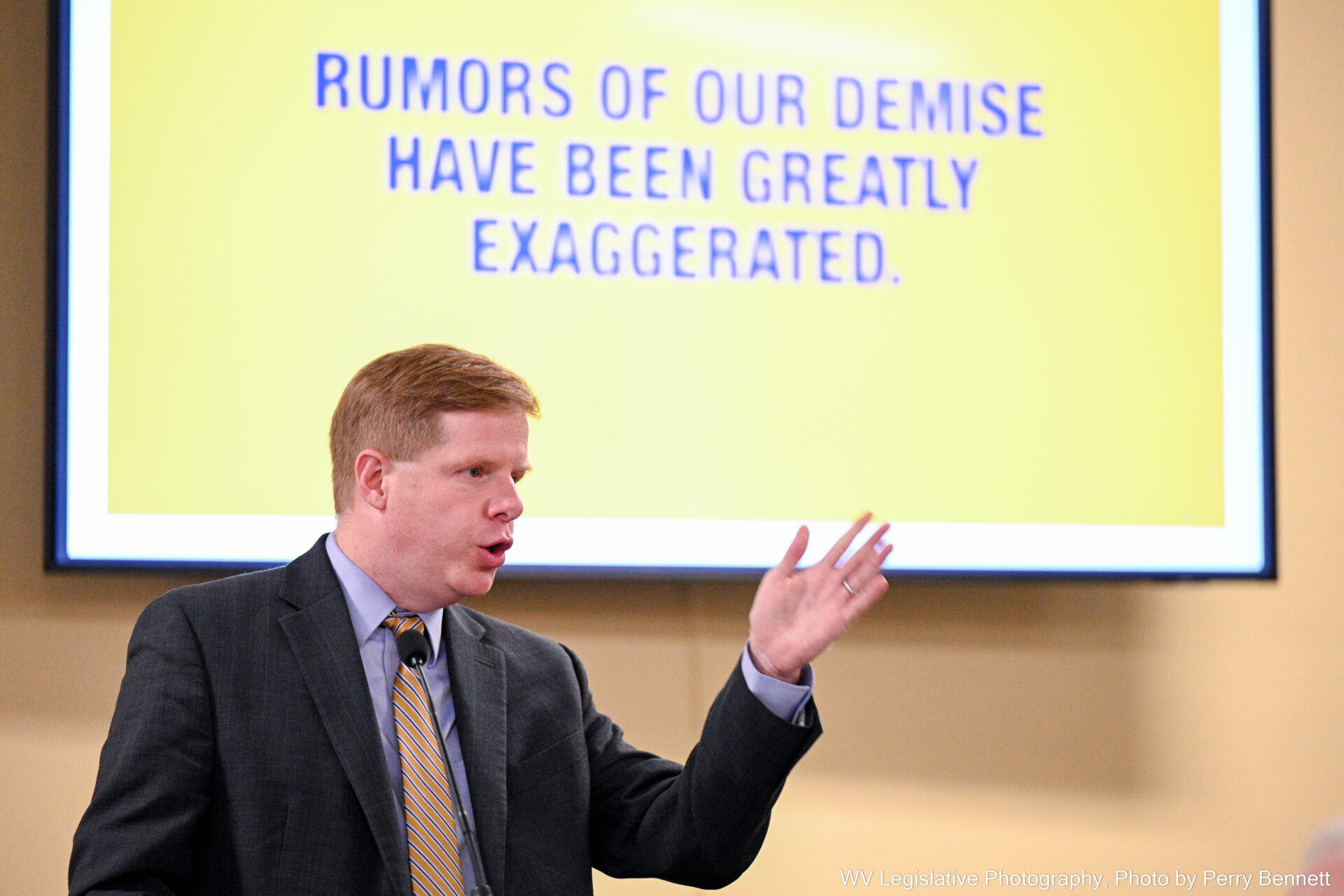West Virginia University Vice President for Strategic Initiatives Rob Alsop told members of the Joint Standing Committee on Finance Monday the school’s planned academic department cuts and reorganizations are focused on increasing enrollment demand and building a state-wide workforce economy.
“We’re going to stop doing a few things, and we have to trim some of our majors,” Alsop said. “We’re doing so with a plan to not only balance our budget, but to allow us to invest in the programs that are going to remain and invest in the programs that are necessary for the growth of West Virginia’s economy.”
The university proposes eliminating several dozen academic programs affecting hundreds of students to address a $45 million budget shortfall.
“We’re still going to offer over 300 majors in Morgantown,” Alsop said. “We’re going to continue to have significant Liberal Arts offerings and our students will have the opportunity for a well rounded education.”
Alsop said the school will key many current and future investments to its technological and industrial programs, all in an effort to grow West Virginia’s economy and workforce.
“If we don’t increase market share, and have programs that are relevant and driving enrollment, we could lose another 5,000 students over the next decade,” Alsop said. “We’re trying to position ourselves so that that does not happen.”
Alsop said seniors and juniors losing programs in liberal arts, humanities and others will be “taught out” in those courses. He said freshmen and sophomores can take another academic path or transfer to another institution.
He said dropping another 5,000 students would mean $72.5 million dollars in revenue loss.
“So we have to be attuned to the needs of our students,” Alsop said. “And what’s driving enrollment. As we work through this transition, I want you to know this transformation for our students is our priority.”
Alsip noted that WVU Medicine, made up of the WVU hospitals in Morgantown, and the WVU Health System has increased from 5 to 25 state-wide members over the past ten years.
“And so when we talk about a robust set of offerings for our students, I mentioned nursing, pharmacy medicine, occupational physical therapy and on down the line,” Alsop said. ”Not only do those kids have all of those academic programs to get at WVU, they now have an affiliated academic health system, where they can go anywhere they want to in the state and serve as part of the WVU network.”
The WVU Board of Governors will vote on the recommended cuts Sept. 15.
